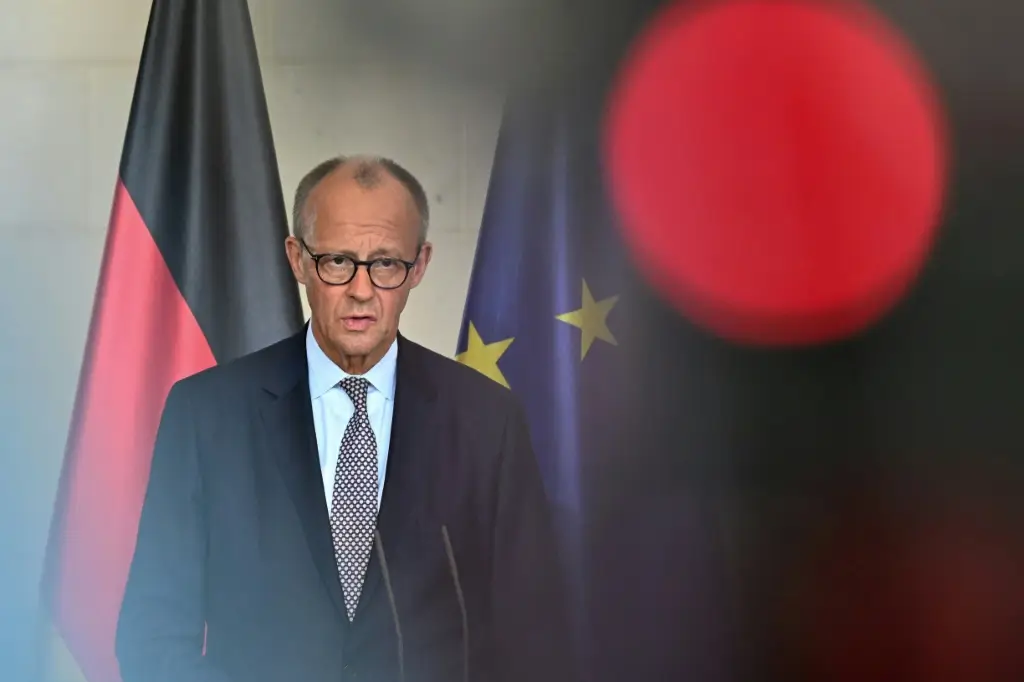
After his first 100 days in office, Chancellor Friedrich Merz (CDU) sees a "political shift" in Germany underway. However, he said on that "much remains to be done." In light of a number of contentious issues, however, Germans in the ZDF "Politbarometer" survey expressed overwhelming skepticism about the cooperation between the CDU/CSU and the SPD.
"Germany is once again a reliable partner in Europe and worldwide," Merz explained on the online service X. "We have initiated the economic turnaround and corrected the migration policy of recent years. The beginning has been made." "We've been working for 100 days to improve living conditions for the people of Germany," the Chancellor said in a video message published on X. "We've made some progress. Investments are being made again in Germany. The economic climate is slowly improving. But I also know we still have a lot to do."
The initial phase was not without conflict – in particular, the failed election of a judge for the Federal Constitutional Court in July caused considerable discord within the coalition of the CDU/CSU and SPD. The alliance also disagrees on other issues, such as the electricity tax cut and Israel policy. "The bottom line is that this government has accomplished a lot in its first 100 days," said SPD parliamentary manager Dirk Wiese on X, pointing to investments in infrastructure and security, the pension package, and the Collective Bargaining Agreement Act.
"But the failed judicial election has overshadowed many things." The appointment of a total of three judges to the Federal Constitutional Court had to be removed from the Bundestag's agenda at the beginning of July at short notice because the CDU/CSU had reservations about the SPD candidate, Frauke Brosius-Gersdorf.
Conflicts within the coalition are also reflected in Germans' perceptions. In the ZDF "Politbarometer," 61 percent of respondents rated the cooperation between the two governing factions as rather poor. 32 percent described it as rather good. When the new government took office in early May, just over half of respondents still believed cooperation was rather good (51 percent).
According to the "Politbarometer," 44 percent rated the federal government's work as rather good, while 46 percent rated it as rather poor. Chancellor Friedrich Merz (CDU) fared slightly better: 49 percent rated his work as rather good, while 45 percent rated it as rather poor. However, when it comes to major challenges such as pension system reform, Germans are rather skeptical: Only 24 percent said the government could make a significant contribution to solving the problems. 72 percent disagreed.
The Chancellor "announced a great departure, but what we see is a regression," Green Party leader Felix Banaszak told the Funke Media Group newspapers. He accused Economics Minister Katherina Reiche (CDU) of delaying climate protection and the energy transition "wherever she can" and instead investing billions in new fossil gas power plants. Banaszak described the federal government's decision to reduce electricity taxes for industry but not for private consumers as "policy that protects a few and leaves the rest out in the cold."
AfD leader Alice Weidel accused Federal Interior Minister Alexander Dobrindt (CSU) of spreading "fairy tales" when he claimed the migration turnaround was working. Border controls "continue to be carried out only sporadically," she explained on X. Furthermore, the AfD believes too many people could be immigrating to Germany. "This is not a migration turnaround, it's a fraud against the voters."
From the perspective of FDP leader Christian Dürr, the policy change promised by Merz has failed to materialize. "Friedrich Merz is even falling behind Angela Merkel when it comes to the courage to embrace reforms and the country's economic renewal," Dürr told the "Rheinische Post" on Thursday. "And the disunity within the coalition has almost become even greater compared to the traffic light coalition."